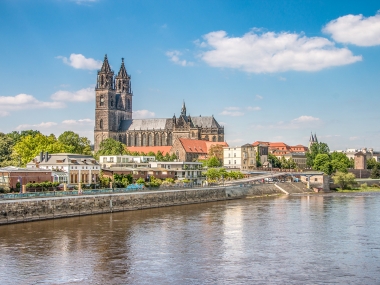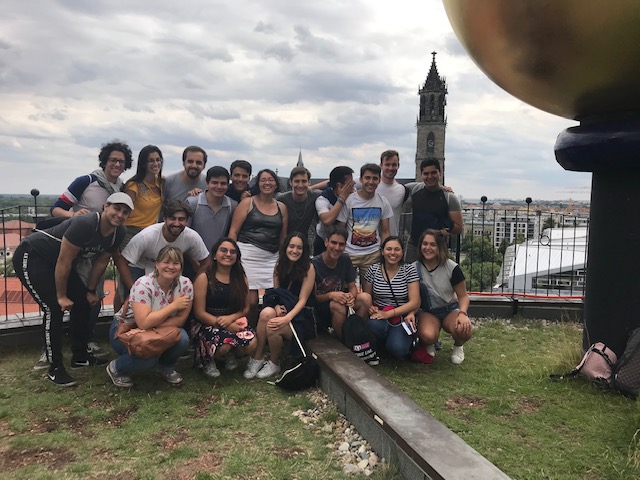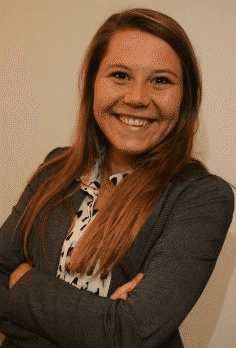Cities in international perspective: Magdeburg
Edited on
27 August 2020In the Welcoming International Talent project, seven cities aim at sharing knowledge, improving policies and implementing best practice projects in their international student cities. But why are these specific cities participating in the WIT project? Each city will explain what they can contribute and what they would like to learn from this knowledge exchange. This time: Magdeburg, Germany.

Magdeburg and international talents
Magdeburg is the capital of Saxony-Anhalt, one of the German ‘Bundesländer’. 240,000 people live here. The city is located very centrally in Europe with best transport connections by motorways, railroads and waterways. Therefore Magdeburg is very important for the logistic industry. In connection with the capital function, a lot of administrations and service companies have settled here. The two universities and the other research institutions in the city exert an increasing influence on the local economy. They play a particularly important role as employers for highly qualified young people.
Magdeburg is a very young scientific location. Most of the institutions were founded in the 1990s. Today the Otto-von-Guericke-University and the University of Applied Sciences together have approx. 19,000 students. The headcount of the University is more than 2,000 and the university hospital with over 4,000 staff show the enormous importance of scientific institutions. Additionally, have been established 5 institutes of research organisations like Leibniz Association or Max Planck Society with a lot of international researchers.
This development was facilitated by the fact that both universities and research institutions were open to international students and researchers from the very beginning. Currently, more than 20% of the students and 11% of the teaching staff of the University come from abroad. In some of the scientific institutes, international researchers or PhD’s are 50% of the staff. For continuing the positive development Magdeburg needs more international talents. But it is not only the higher education and science sectors that need talented and qualified people. Also, the companies in the region have a huge demand for engineers and skilled workers. As it is currently extremely difficult to find suitable employees on the regional and national labour market, local companies have started to look around on the European and international labour market.
The great challenge for Magdeburg is during next years to motivate international talents to come to our city and to integrate them in our urban society. It’s our ambition to offer an attractive life and work perspective to as many as possible of the internationals.
Magdeburg and URBACT 
In the Welcoming International Talent Project, Magdeburg has established a working group with actors at the local level. The aim is to better coordinate the multitude of offers and initiatives and to know about each other. The working group supports the projects from the transfer plan. Thus, Magdeburg will establish an International House as the first contact point for internationals. In addition, we will bundle all necessary information and services for internationals on a web portal.
"Welcoming International Talent" deals with the question of how internationalisation can succeed. How do you deal with international professionals? How can the stay, integration and motivation to stay be improved? We want to learn from the network partners and exchange ideas. How do the other cities do it? What can we adapt? Such an EU project is always a catalyst at the same time and brings the sometimes necessary pressure to finally tackle and implement the project.
This exchange with European partners and like-minded people is extremely helpful. After all, we all work with the same goal: to improve the way we deal with international talent. One project partner is a bit further along than the other. But we are all working on the same topic and can support each other. So we are particularly interested in how Groningen has built up the "Welcome Center" or how it has brought all partners on board through an agreement. But it is also impressive to see how the partners in Debrecen (Hungary) or in Bielsko Biala (Poland) set out to attract and promote international talent. It's always good to look beyond one's own nose.
More information
You can find the articles on the International House in the local Magdeburg newspaper (in German) below:
![]() Download Welcoming International Talent article International House (2) (265.22 KB)
Download Welcoming International Talent article International House (2) (265.22 KB)
 Submitted by Evite van Winkoop on
Submitted by Evite van Winkoop on
